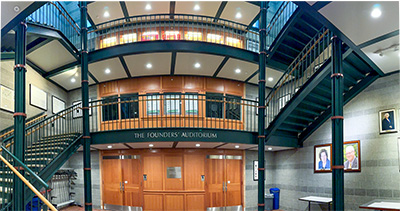Questions? Connect with us
- Ask admissions
- Attend an information session
- Call us at 503-494-7725 or 866-223-1811 (toll free)
Nursing scholarships
OHSU offers more nursing scholarships than ever before. See if you qualify.
Why choose OHSU?
At Oregon’s only academic health center, you’ll get the education, experience and support you need to launch or advance your nursing career.
- Expert faculty. Learn from nationally recognized nursing leaders who bring real-world experience to the classroom.
- High job placement. Our graduates are in high demand, with many finding jobs before they finish their program.
- Flexible learning. Choose from in-person, hybrid or fully online programs.
- Personalized support. Get help when you need it, from application through graduation.
- Diverse clinical experiences planned for you. Gain hands-on experience in hospitals, clinics and health centers across Oregon. OHSU arranges all your clinical placements.
Explore nursing programs at OHSU

Bachelor's programs
Earn your bachelor's degree in nursing with flexible program options.

Online master's programs
Advance your nursing career with online degrees in education and health systems.

Doctoral programs
Further your nursing career with advanced degrees and training.
Related links
OHSU School of Nursing is near you, and we’re also online
Nationally ranked nursing school
The OHSU School of Nursing is ranked among the top nursing schools in the country by U.S. News & World Report.
- No. 1 in Bachelor of Science in Nursing (B.S.N.) Programs in Oregon (No. 13 nationally)
- No. 1 in Nursing Schools: Doctor of Nursing Practice (D.N.P.) in Oregon (No. 36 nationally)
- No. 3 in Nurse-Midwifery Programs
- No. 12 in Nurse Anesthesia (CRNA) Schools
- No. 12 in Online Graduate Nursing Programs
- No. 12 in Online Master’s in Nursing Education Programs
Hear from students
Meet Kiara, B.S. in nursing student
Since joining OHSU's School of Nursing, Kiara earned a cancer research internship and became president of the Oregon Student Nurses' Association. She believes that “if you're a nursing student, you're already a leader.”
Meet Nik, Nurse-Midwifery student
“Because of OHSU I have a greater awareness of myself and others. You don’t realize how important diversity is in your life…until you’re deep in it and see how it’s changing you for the better.”
